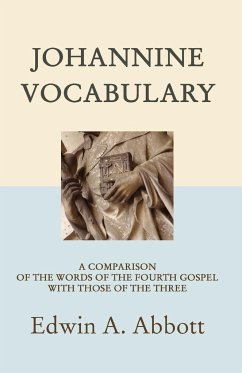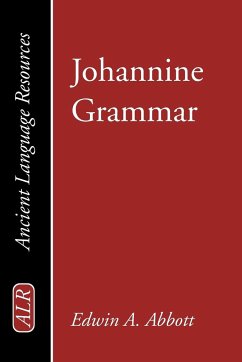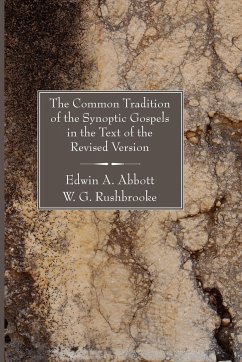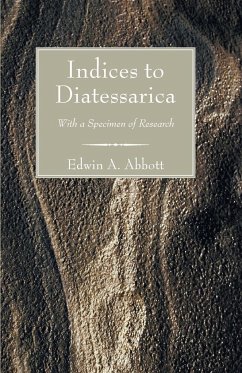
Johannine Vocabulary
Versandkostenfrei!
Versandfertig in 1-2 Wochen
32,99 €
inkl. MwSt.

PAYBACK Punkte
16 °P sammeln!
Contents Introduction Book I: Johannine Key-Words 1. Believing 2. Authority 3. Johannine Synonyms Book II: Johannine and Synoptic Disagreements 1. Johannine Deviations from Synoptic Vocabulary 2. Synoptic Deviations from Johannine Vocabulary Book III: Johannine and Synoptic Agreements 1. Words Peculiar to John and Mark 2. Words Peculiar to John and Matthew 3. Words Peculiar to John and Luke 4. Words Peculiar to John, Mark, and Matthew 5. Words Peculiar to John, Mark, and Luke 6. Words Mostly Peculiar to John, Matthew, and Luke Conclusion














